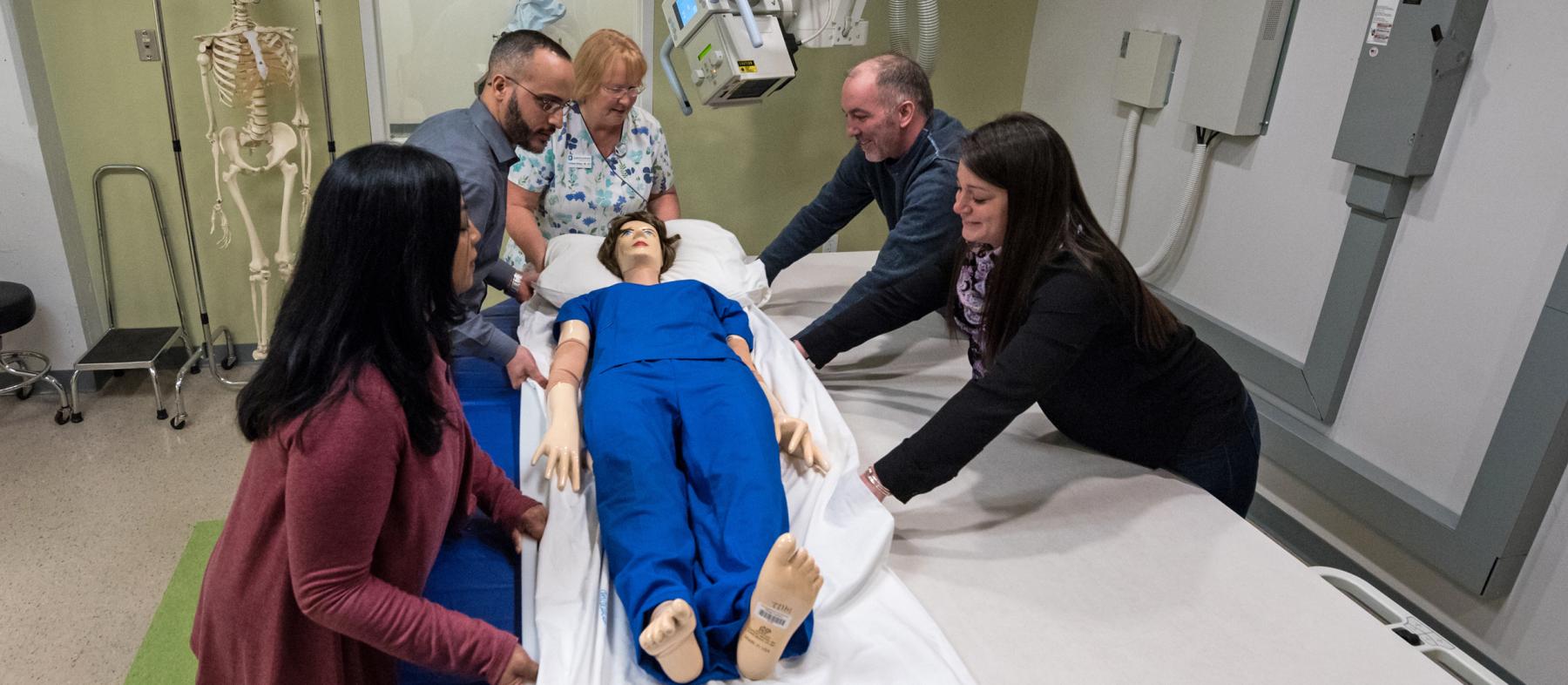Program Goals:
The Computer Tomography Certificate program includes the following Program Goals:
- Provide the 16 hours of didactic work required to take the Certification exam from ARRT.
- Provide the clinical experience to complete all competencies required for the ARRT exam.
Student Learning Outcomes:
Upon completion of the program, graduates will be able to:
- List the generations of CT Scanners.
- Apply digital imaging principles to CT protocols.
- Employ knowledge of sectional anatomy.
- Perform venipuncture and insertion of IV catheters.
- Complete 16 hours of required didactic work.
- Participate in clinical time in order to complete all required competencies.
Admissions Process:
Admissions inquiries should be directed to admissions@qcc.mass.edu. Prospective students may apply to the program of their choice by following the enrollment steps at www.QCC.edu/enrollment-steps.
Program Admissions Requirements:
Students should note that some first semester courses carry minimum prerequisites. Refer to the program grid.
- High School Diploma or GED/HiSET.
- Current American Registry of Radiologic Technologists (ARRT) Certification in Radiography, Radiation Therapy, Nuclear Medicine or the Nuclear Medicine Technology Certification Board (NMTCB).
- Current license by the State of Massachusetts Radiation Control Program, Department of Public Health.
CORI, SORI, Finger Printing & Drug Testing:
Criminal Offender Record Information (CORI), Sex Offender Registry Information (SORI), and National Background checks and drug testing are required in the program, either annually or every semester. Fingerprinting may be required. Fingerprinting and drug testing results must meet clinical requirements. An issue with CORI/SORI, National Background, fingerprinting and/or drug testing could prevent a student from participating in a clinical/field rotation, which could result in dismissal from the program.
Additional Cost:
See the Program Fees page.
- Students enrolled in RDT courses are subject to expenses for uniforms and transportation to clinical sites and clinical parking fees.
Technical Performance Standards:
See the Technical Performance Standards page. (Note: Not all programs have technical performance standards).
- The QCC Radiologic Technology program is deeply committed to diversity and fostering an inclusive environment that represents the diverse population of healthcare professionals. We value the uniqueness and potential of every learner and strive to create a culture of respect and equality, welcoming all students, including individuals with disabilities. We encourage students with disabilities to disclose their needs and seek accommodations to fully engage in our program. All disability-related conversations and requests are handled through a confidential process to protect the privacy of our students. After reviewing the Technical Performance Standards, students who have questions about accommodations should contact QCC Student Accessibility Services as soon as possible. Given the complexities of clinical-based programs, additional time may be needed to effectively implement accommodations.
- For more information, contact QCC Student Accessibility Services:
Credit for Prior Learning:
Credit for Prior Learning (CPL) allows students to use skills they already have towards a college degree or certificate. Work, life, volunteer and military experience may be translated into credit, allowing students to take fewer classes and earn their degree faster. CPL eliminates redundancies for students who have already earned credentials or mastered skills required for their program of study. Email experience@qcc.mass.edu for more information and eligibility.
Career Outlook:
Please consult the Massachusetts Career Information System at https://masscis.intocareers.org/ or the Occupational Outlook Handbook at www.bls.gov/ooh/ for specific occupational information. The CIP code for this program is 51.0911.
Transfer Articulations & Opportunities:
Prospective students may learn more about transfer articulation agreements at www.QCC.edu/agreements. More information regarding transfer opportunities is available at www.QCC.edu/transfer.

